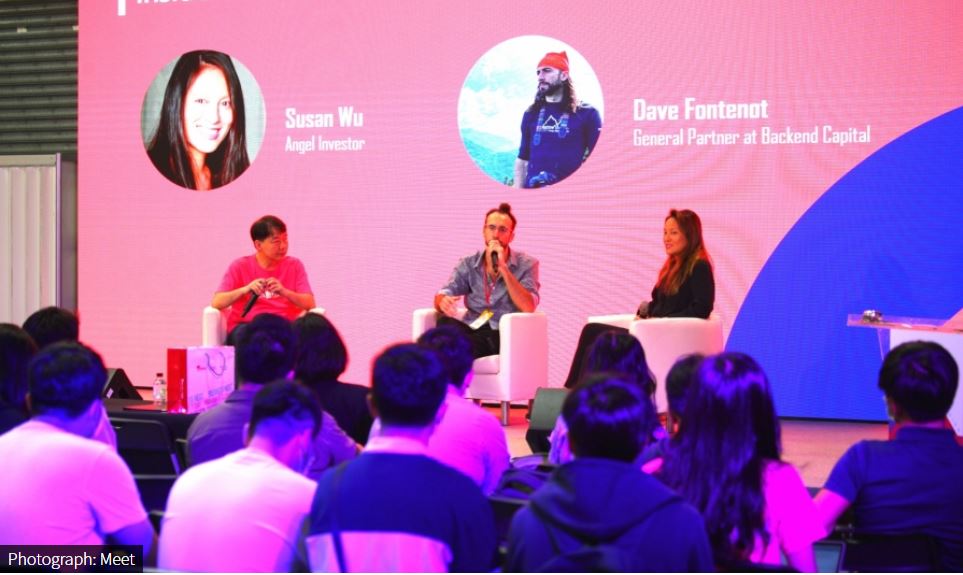Key takeaways from Meet Global Salon 2020 or What Taiwan’s startups need to know, as told by Silicon valley veterans

Silicon Valley in the US has been recognized as the model of entrepreneurship around the world. At Meet Global Salon 2020, angel investor Susan Wu and Backend Captial’s general partner Dave Fontenot, who both have extensive experience in Silicon Valley, shared their thoughts on what it means to be a hacker and their views on Taiwan’s startup scene.
Wu defined a hacker as anybody who is constantly thinking outside the rules of the system to create a new system. He or she can be a technical hacker, a social system hacker, or a system hacker.

“For example, Donald Trump is a brilliant social engineer. Even though his intentions are nefarious, he’s really good at hacking popular culture to whatever he wants to be. And there are system hackers such as the entire Black Lives Matter movement. It is a showcase of system hackers dismantling power from those who have traditionally held power and distributing power to people who have not had power in the past,” Wu said.
“There are a lot of different ways to think about hacking. When I invest or work with entrepreneurs, I look for some hacker energy,” she added.
Fontenot agreed that the most common perception of a hacker, which refers to those writing codes or breaking into a computer system, is a very narrow view.
“Hacker is more of a mindset,” he said.

To be a good hacker, Wu said one has to understand the rules of the game very well in order to bend the rules. If a hacker can’t understand that, he or she cannot be a good one.
She noticed that the education system in Taiwan reinforces obedience and compliance, and she proposed encouraging a cultural shift in the city in which people play by the rules and master the rules so they can create their own new rules.
Commenting on the startup scene in Taiwan, Fortenot said it is very different from that in the Silicon Valley and not necessarily in a good way.
“Susan and I were taking a walk individually before the conference. I noticed that not many founders tried to engage me in any ways. In Silicon Valley, when I see hackers at a conference,they’re pushing every limit of the rules at the conference to get the attention of the people walking by,” he said.
Wu echoed his sentiment.
“Every opportunity is a conversion point. Every single interaction is a conversation point. You should be mastering and manipulating those conversion points as much as you can,” she said.
“One of the important things startups in Taiwan can do is start pitching to the Daves and me.”
Another thing Fontenot and Wu noticed about Taiwan’s startup scene is that hackers focus too much on their technology feature.
“What really strikes me about the startup ecosystem here is that there’s a lack of the ability of productization. There are a lot of descriptions and features of the technology. The startups may have really fantastic technology here but I wouldn’t be able to tell based on the stories that these startups are telling about their products,” Wu said.
She cited a compelling story as key to success. She elaborated a good pitch should answer these questions: How are you going to change the future of the world? Why would I get excited about this either as a customer or an investor? How are you going to change my life as a human being living in the world? How are you going to change the world economy and ecosystem?
“We’re ultimately human beings. As Donald Trump has shown and as all these other populist movements have shown, we want to be moved emotionally by everything, whether it is science or technology or products. We want to be moved and touched emotionally,” she explained.
Additionally, Fontenot said startups in Taiwan should focus more on their users.
“The top founders in Silicon Valley are so focused on their users. They are constantly telling me who are going to use their product or if some people have already been using their product, how it changed their lives, or how it will change my life as a user,” he said.
Looking back, Wu said now is a great time to become a hacker or an investor.
“When I first started in Silicon Valley, there weren’t many role models. The companies are very traditional white-shoe VC firms with a fairly conservative way of doing things. It was only with the rise of micro VCs and with the incubators and the very powerful individual angel investors, then the culture started to change,” she reflected.
“There are many different paths for succeeding in Silicon Valley today that didn't exist previously.”
She continued saying that 2020 is a great year for female hackers as well. Female hackers can be the most effective hackers because nobody is going to expect them as a hacker.
“You can present as Sheryl Sandberg (CEO of Facebook) or President Tsai, and you can be the most powerful hacker in the world because no one is expecting it. They’re not going to see it coming,” she said.
〔Original :Meet Startup @ TW〕
https://meet.bnext.com.tw/intl/articles/view/47127